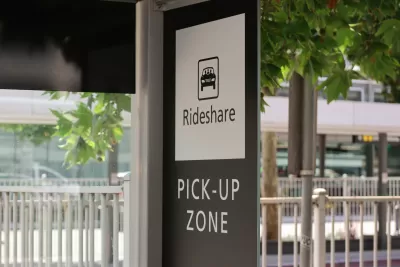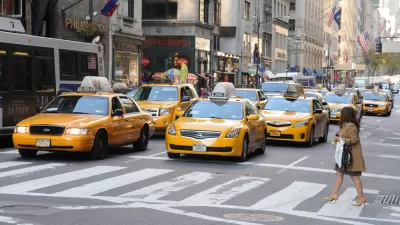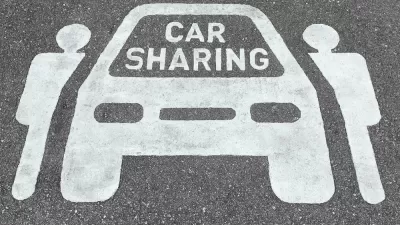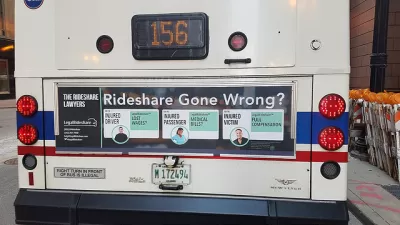From the beginning, TNCs like Lyft and Uber touted shared rides as their key product. Now, Lyft is ending the practice.

Commenting on Lyft’s decision to end shared rides, Jarrett Walker writes, “My impression was that they were overselling the product in contexts where it wasn’t appropriate, and they were offering the same discount to the person dropped off first — whose trip is exactly what it would have been if traveling alone — as to the person whose trip was being made much longer,” Walker explains. “They didn’t pay drivers enough to deal with the hassles, including customers not understanding the rules and poor relations between strangers sharing the car.”
Walker adds, “But shared-ride products are still needed, especially when demand appears all at once in high volume,” especially in situations like flights landing at small airports or concerts and events when single-ride taxis can’t handle a sudden spike in demand. “I’m disappointed Lyft couldn’t focus this product on that problem, grouping people only when their destinations were very close together, and thus creating a product that both customers and drivers could be believe in.”
FULL STORY: Lyft: The End of Shared Rides

Planetizen Federal Action Tracker
A weekly monitor of how Trump’s orders and actions are impacting planners and planning in America.

Chicago’s Ghost Rails
Just beneath the surface of the modern city lie the remnants of its expansive early 20th-century streetcar system.

San Antonio and Austin are Fusing Into one Massive Megaregion
The region spanning the two central Texas cities is growing fast, posing challenges for local infrastructure and water supplies.

Since Zion's Shuttles Went Electric “The Smog is Gone”
Visitors to Zion National Park can enjoy the canyon via the nation’s first fully electric park shuttle system.

Trump Distributing DOT Safety Funds at 1/10 Rate of Biden
Funds for Safe Streets and other transportation safety and equity programs are being held up by administrative reviews and conflicts with the Trump administration’s priorities.

German Cities Subsidize Taxis for Women Amid Wave of Violence
Free or low-cost taxi rides can help women navigate cities more safely, but critics say the programs don't address the root causes of violence against women.
Urban Design for Planners 1: Software Tools
This six-course series explores essential urban design concepts using open source software and equips planners with the tools they need to participate fully in the urban design process.
Planning for Universal Design
Learn the tools for implementing Universal Design in planning regulations.
planning NEXT
Appalachian Highlands Housing Partners
Mpact (founded as Rail~Volution)
City of Camden Redevelopment Agency
City of Astoria
City of Portland
City of Laramie





























